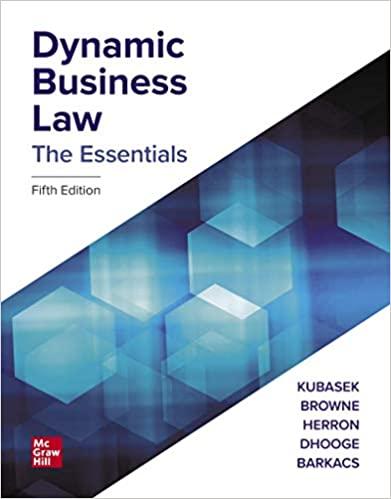The Garrett Group, a real estate company, was in financial trouble after the recession. It informed its
Question:
The Garrett Group, a real estate company, was in financial trouble after the recession. It informed its creditor, CVB Financial Corporation that it could not make loan payments. After CVB restructured the Garrett Group’s loan, Garrett indicated it still could not fulfill its debts to CVB. Despite the Garrett Group’s statements, CVB represented to the SEC that the Garrett Group were financially solvent and would be able to pay its loans with ease. In 2010, the SEC filed a subpoena seeking information about CVB’s loan underwriting process. A month after the subpoena, CVB wrote off $34 million in loans to the Garrett Group. CVB’s stock also dropped 22 percent as a result of the subpoena and writing off the loan. A class action was subsequently filed against CVB alleging violations of Section 10(b) and Rule 10b-5 of the Securities and Exchange Act of 1934. Consider the following statements made by CVB: “[t]he overall credit quality of the loan portfolio is sound;” “CVB’s credit metrics are superior” to those of its peers; “strong credit culture and underwriting integrity remain paramount at CVB"; and “CVB’s culture has limited its exposure to problem credits.” Do you think any of the four statements on their faces, could be considered materially misleading under Rule 10b-5? Why or why not? What do you think is necessary for a statement to be considered materially misleading?
Step by Step Answer:

Dynamic Business Law The Essentials
ISBN: 9781260253382
5th Edition
Authors: Nancy Kubasek, M. Neil Browne, Daniel Herron, Lucien Dhooge, Linda Barkacs





